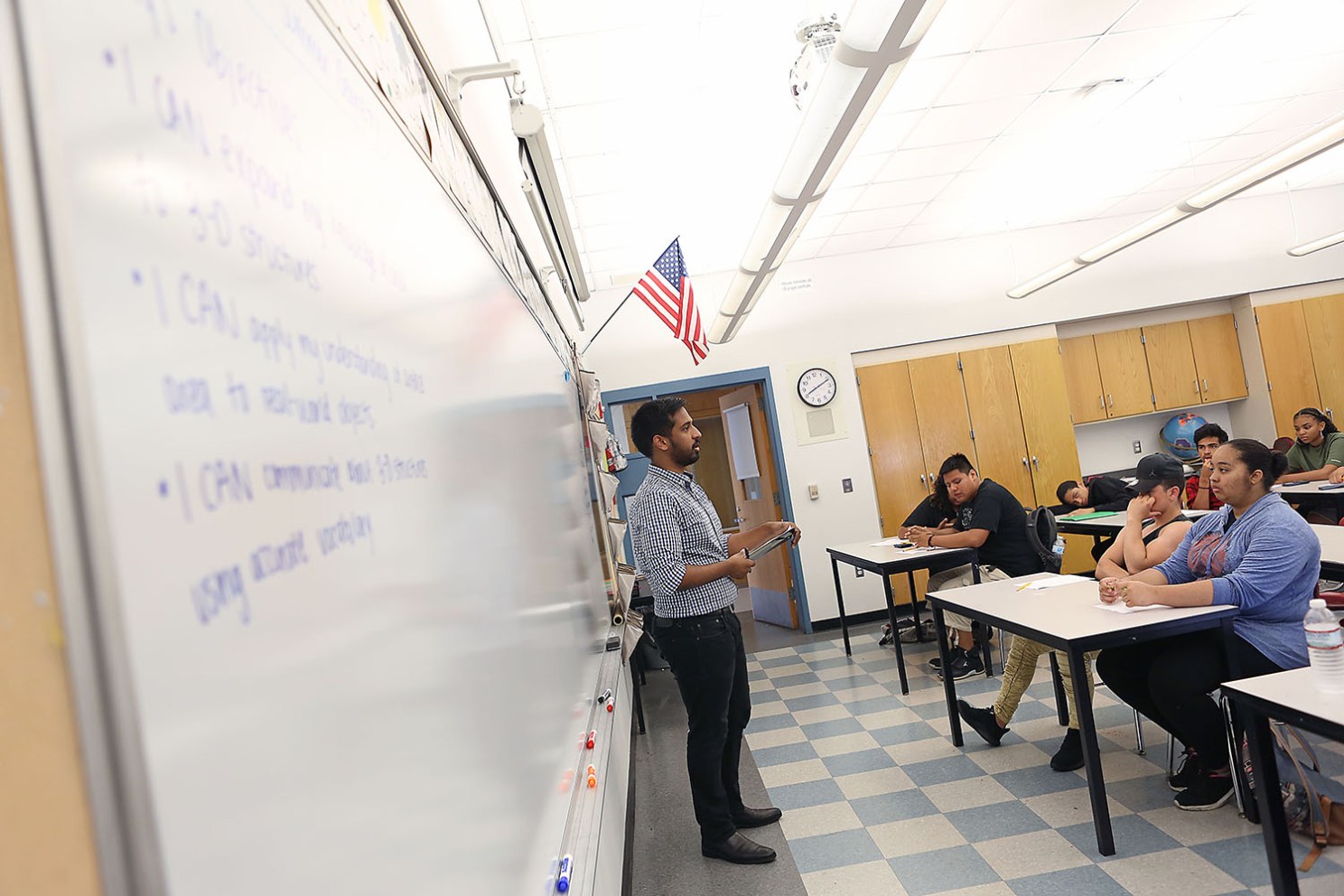Harvard Teacher Fellows provides new teachers, local impact

Harvard Teacher Fellows alumnus Jerry Nelluvelil teaches a class at Chelsea High School in 2018. Photo by Jill Anderson
For five years, Harvard Teacher Fellows (HTF) has provided Harvard undergraduates with an innovative pathway into teaching, preparing fellows for the complex world of education through five semesters of coursework, summer student teaching, and a yearlong teaching residency. In schools from Oakland, Calif., to New York, fledgling HTFers have grown into accomplished educators.
Last spring, HTF was preparing to send its new fellows out of state for teaching residency placements when school closures threw the program into turmoil. Faced with uncertainty about licensing requirements, summer teaching, and travel, HTF pivoted, placing all of its 2020–21 fellows in the Boston area and doubling down on its expertise in online teaching and learning. In past years, finding new placements on such short notice would have been impossible — but the pandemic actually made it easier.
“As it became clear that COVID would continue to impact local schools throughout the fall, the schools began to say, ‘We need more people, because we have no idea what remote learning is going to look like,’” says HTF fieldwork administrator Emily Hess. “Our fellows were able to start to fill that need.”
In Greater Boston, a strong community impact
Of the 28 fellows working in schools across the Boston area, half are working in the Chelsea Public School District (CPS), in a city The New York Times once called the “epicenter” of the pandemic in Massachusetts.
CPS is one of HTF’s longstanding partners, and “it was gratifying to partner with the district’s educators and to offer the support of a group of recent college graduates who had been learning and practicing to teach for eight months prior,” says Lecturer Noah Heller, director of HTF. “Our fellows spent the spring developing foundational pedagogical knowledge and the summer rehearsing teaching practices and learning to implement instructional technologies. They were eager to apply these skills in the challenging remote settings that currently exist in Chelsea and elsewhere.”
CPS, a district where more than 80 percent of students are classified as high needs and over 40 percent are classified as English language learners, found homes for the new fellows as teachers of record and co-teachers. While Chelsea normally accepts HTFers for hard-to-fill positions like high school chemistry and math, this year, fellows are filling positions across the board, bringing their expertise in both STEM and the humanities to CPS students.
All fellows are being mentored by master teachers in Chelsea as they continue to develop under the supervision of HTF. “The HTF fellows, in addition to having a growth mindset and being open to feedback, are really knowledgeable about their content,” says Sarah Kent, assistant superintendent of curriculum, instruction, and assessment at Chelsea Public Schools. “Some of the new humanities fellows are bilingual, which has also been helpful.”
In another local placement, the impact of this year’s HTF fellows is even more pronounced. The Academy of the Pacific Rim (APR) Charter School, in Boston’s Hyde Park neighborhood, is a smaller school, and the five new HTF fellows have become valuable contributors to the community.




